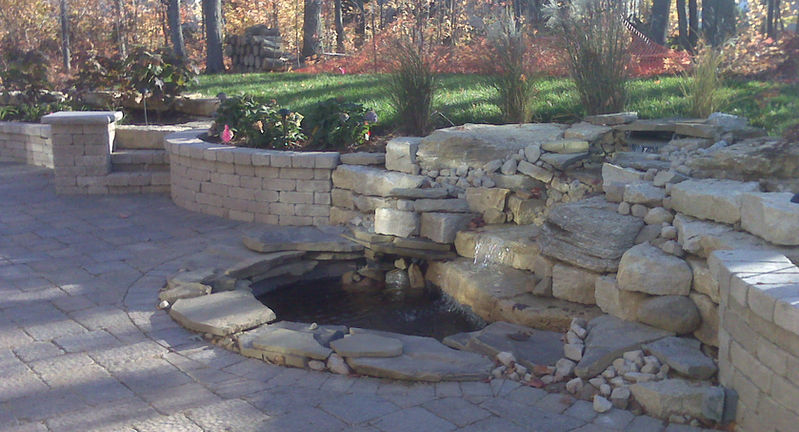
Hardscapes
Pavers may used for a number of projects around your home and throughout your landscape including:
-
Entrances
-
Walkways
-
Steps
-
Retaining Walls
-
Patios
-
Pool Decks
-
Planters
-
Driveways & Extensions
Pavers vs Concrete
American home owners are just beginning to recognize the potential and advantages of using pavers in their landscape design.
Pavers provide an immediate beautification of your home landscaping, increasing value to your property and a lifetime enjoyment by your friends and family. The quality and strength of pavers provides homeowners with a lasting product which is easy to maintain and resistant to outside elements including weather and insects.
Paver Types
There are many paver products offering numerous choices in color, pattern, texture, finishes and shapes. Depending on your particular taste, style and budget, any one of these will add elegance and character to your landscape design.
Concrete Pavers
Consisting of a mixture of cement and aggregate which can be molded and dyed, cement pavers are available in a variety of colors, shapes and finishes to compliment the architectural style of your home. Cement pavers are sturdy and resistant to cracking; damaged pieces can easily be replaced.
Natural Stone
Stone is produced by nature and is available in many natural colors. Its shape and thickness may be fabricated to fit your needs. Stone is typically used for walls and accent features, but not recommended for high-traffic areas as it is more fragile than concrete pavers.
To enhance the color of stone, special sealants and care are often necessary. However, many people choose to let weather naturally change the color, texture and overall appearance of their stone in a way that only Mother Nature can duplicate.
On newly-built homes, pavers are the preferred choice over concrete. As a new built house settles over time, concrete will also settle. Pavers can be pulled up, new base installed and re-laied quickly and economically.
Portfolio
In the galleries below, you can find a sampling of Darby Creek's work. From start to finish, we work hand in hand with our clients to ensure their vision becomes reality. If you need landscape design and installation, call us today! We would love to work with you.




























